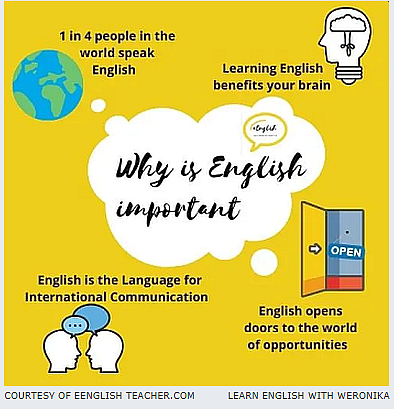How do we make ourselves really competent in our English?
True, we Filipinos have had a 100-year head start in English over our Asian neighbors, but as nonnative English speakers, we have frittered away that lead instead of capitalizing and building on it. Largely by default, we have created a linguistic, social, and media environment that promotes the habit of force-fitting our Tagalog or dialect thoughts into the entirely different linguistic structures of English. We bask in the reputation of being bilingual or even trilingual as a people, but the truth is that most of us haven’t really made ourselves bilingual enough to the point of thinking our Tagalog thoughts in grammatically correct Tagalog and of thinking our English thoughts in grammatically correct English. We have become a Taglish nation—pidgin speakers of English combined with our regional dialects.

We can decisively address the root cause of this problem by conducting a no-nonsense drive to strengthen the English grammar foundations not only of our schoolchildren and their English teachers but also of the country’s work force and of the rest of the adult population. We need to do this because being mostly nonnative English speakers, we really can’t achieve a decent mastery of English by just learning how to speak it. Unlike native English speakers who grow up speaking the language, we can’t make ourselves functionally literate in English by just memorizing and being able to articulate a few hundreds of its words, stock phrases, and most common expressions. To become truly proficient in English, we must also be able to read English sufficiently well and to think and write in grammatically, structurally, and semantically correct English.
But such a level of English proficiency is unlikely to happen unless we really understand how the various linguistic elements of English work—its vocabulary, its parts of speech, its rules for sentence construction, and its idioms and figures of speech. As a baseline skill, we need to know at least how to properly combine and connect English words and phrases to form ideas. That means being able to write clear, logical, and grammatically correct sentences. For without this skill, most of us will just end up forever groping with English words and awkwardly force-fitting them into the entirely different linguistic structures of Tagalog and our various regional dialects.
To begin with, we need to give our schoolchildren a strong foundation in English grammar, regardless of whether English is finally restored or Filipino is retained as the primary medium of instruction in our schools. Then we must make the schoolchildren keenly aware that due to its inherently different grammar, semantics, and structure, English just doesn’t work in the same way as Tagalog and our regional languages and dialects do. If we don’t teach them these differences early enough, their learning of English would be seriously hampered, a situation that could lead to an even more serious pidginization of their English and of their Tagalog and regional tongues as well.
The inadequate English proficiency of our public school teachers is, of course, the second big problem. They need strong encouragement to pursue a continuing English improvement program on their own—and offer them attractive incentives for attaining specific improvement levels in their English proficiency.
We also must address the need to improve the English proficiency of the work force of our business, industry, and government sectors. This simple, cost-efficient way can achieve this objective—run in-house refresher courses in English grammar and usage for their managers and rank-in-file, and strongly encourage and motivate all of them to pursue a personal English improvement program on their own.
We can become truly proficient in English only through a strongly supported national program and an individually self-driven effort to excel in it.
----------------
This is an updated and condensed version of the author's 857-word essay that formed part of the introduction to his book Give Your English The Winning Edge
(480 pages, ©2009 and published by the Manila Times Publishing Corp., Manila, Philippines). This essay, 2124th of the series, appears in the column “English Plain and Simple” by Jose A. Carillo in the Campus Press section of the November 10, 2022 digital edition of The Manila Times
, ©2022 by the Manila Times Publishing Corp. All rights reserved.
The artwork accompanying this essay is from the "Learn English with Weronika" website (https://www.eenglishteacher.com/) and is used here with permission courtesy of the Poland-born multilingual language teacher who simply calls herself Teacher Weronika. She can be reached at english.teacher.weronika@gmail.com.Read this essay online in
The Manila Times:
A more focused way to improve our English(Next week:
The language of science) November 17, 2022
Visit Jose Carillo’s English Forum, http://josecarilloforum.com. You can follow me on Facebook and Twitter and e-mail me at j8carillo@yahoo.com.